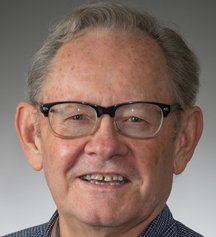I was born on the westernmost edge of the Great Plains. My parents made sure there were lots of books in the house for my younger brother and me, but what I read most avidly was Poe, and to this day my work displays some Poe-ish qualities. I graduated from the University of Northern Colorado in 1972, and received an M.F.A. from the University of British Columbia in 1974, where I studied with the very underrated Irish expatriate poet, fiction writer and essayist George McWhirter; the musicality and imaginative openness of his work are qualities I aspire to in my own. In the “real life” that followed graduate school I worked in a variety of jobs, from clerking in a book store to substitute teaching in and around Denver. I toyed for a long while with the idea of pursuing a Ph.D., but those were the heydays of Barthes and Derrida, who struck me as intellectual con-men (they still do), and I felt there was a good deal of bad faith in the whole process. I remember dipping my toes in those academic waters by auditing a class focused on Deconstruction. The professor in charge remarked that the theories we’d be studying were “mainly crap,” but added, “Of course, you'll have to learn them if you hope to get a teaching job.” A few months later a friend of mine, at the fag-end of his Ph.D. experience at the same institution, was blocked from writing his thesis on John Fowles, because (according to his advisor) “Fowles isn't a serious writer.” The sheer idiocy of that statement soured me on further formal education, but what it boiled down to was the realization that I was too arrogant and pig-headed for such games. Luckily, I stumbled into a position as a staff marketing writer for a large Colorado-based bank network, and ever since I’ve mostly made my living as a writer for hire, although I occasionally teach both online and face-to-face courses for both undergraduate and graduate level students. I live with my wife, Melody Madonna, a certified Iyengar yoga teacher (see her Harmony Hill Yoga site), in the mountains southwest of Denver. In the all the years of my writing life, I’ve responded to and aspired to a quality in poetry that I can only call “clarity.” Not that I’m interested in clarity at the expense of honest complexity; I despise those bland accounts of near-death sailing “into the Light.” Light is not always benign: it blinds as often as it offers revelation, as anyone who’s grown up in my part of the world would know. That contradiction, if it is one (it could be that contradiction exists only in the mind), fascinates me continually. When the writing is going well, it’s the feeling of seeing into that alerts me to the fact. I get the same feeling from reading anyone else’s good poem. In one entitled “Small Wild Crabs Delighting on Black Sand,” James Wright says, “I don’t want to know. I want to see.” That’s what I say.

